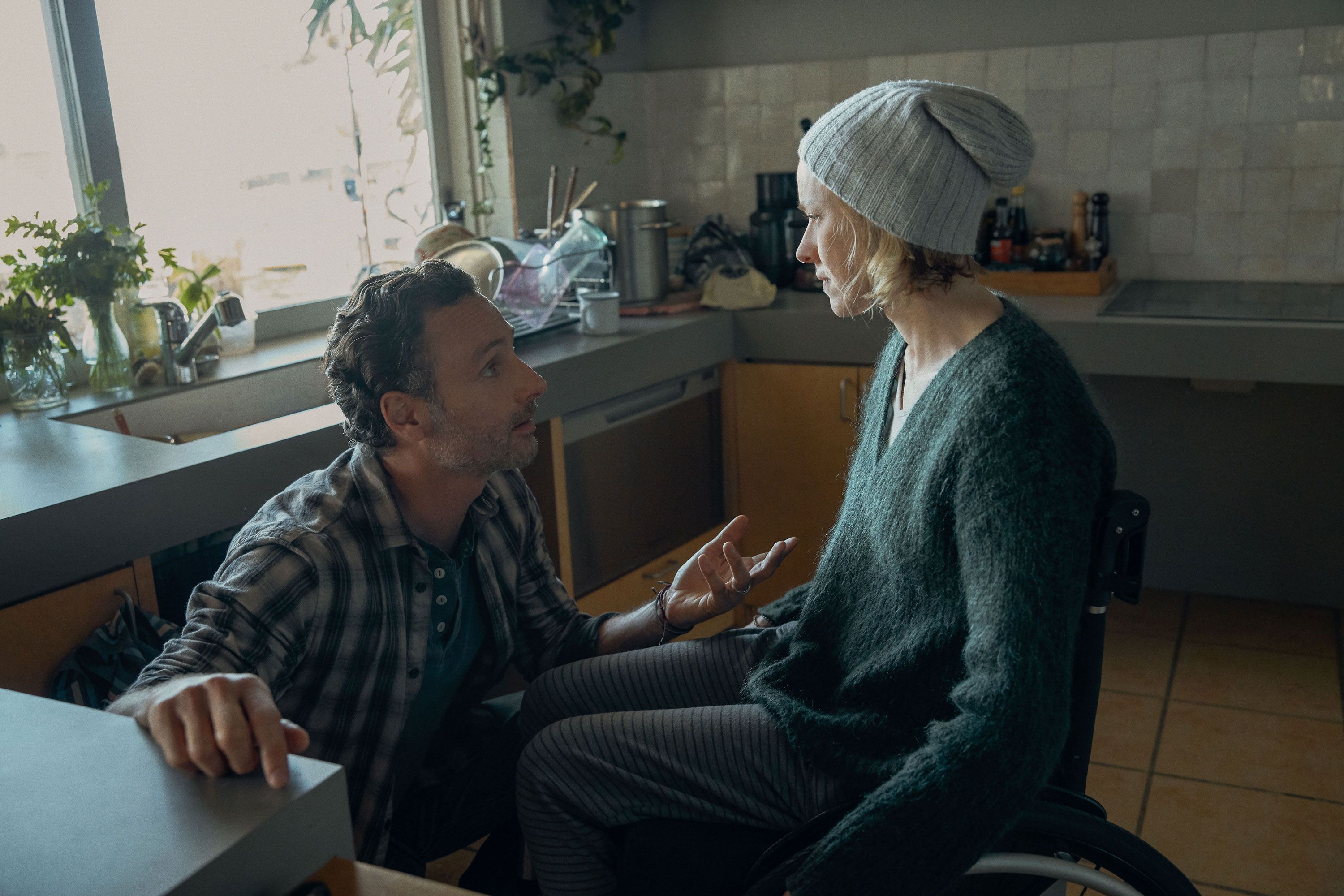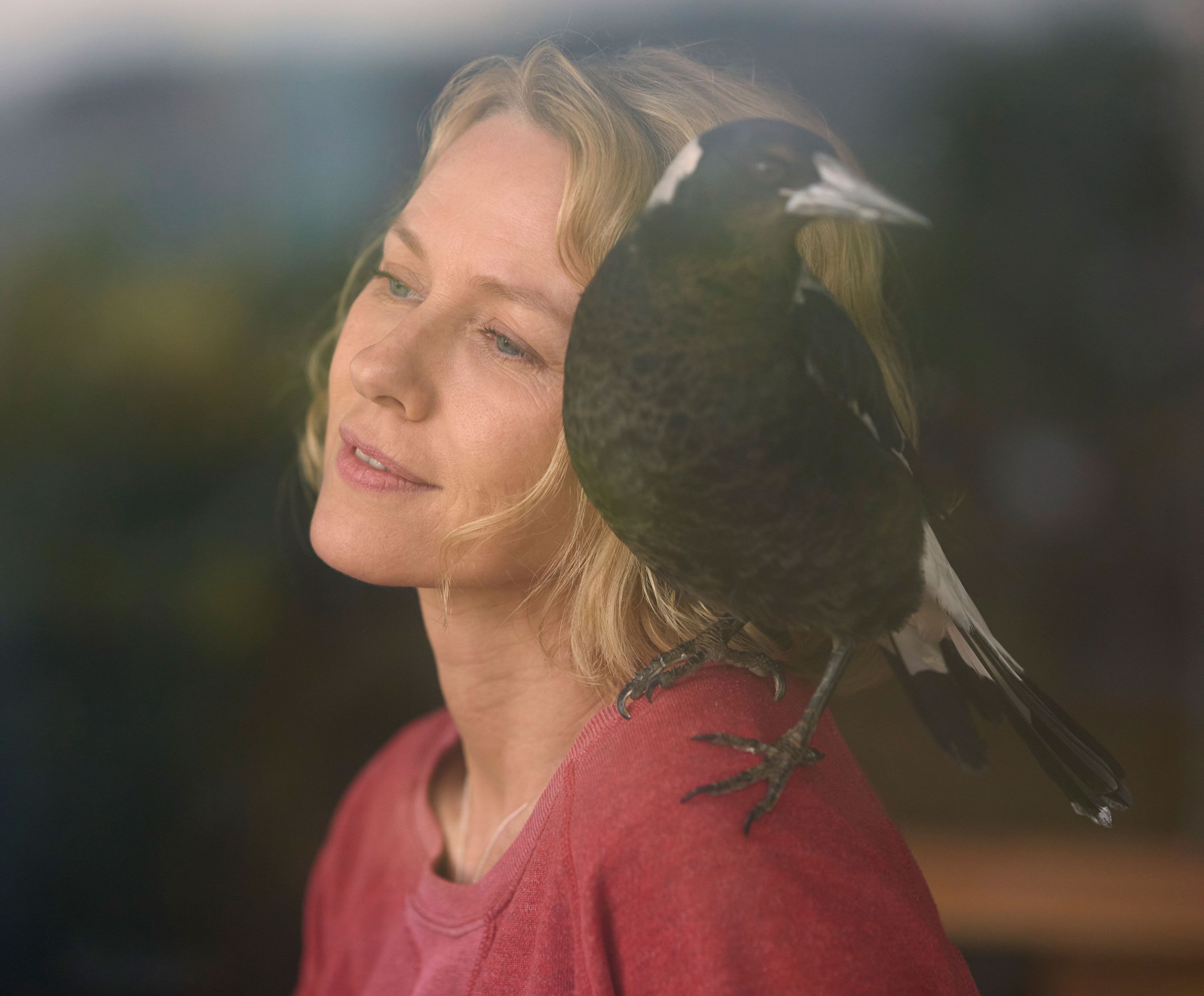If you’re in need of an impossibly sweet and moving story right now - and let’s face it; who isn’t? - Penguin Bloom on Netflix is an absolute must watch. Directed by Glendyn Ivin, the film is an adaptation of the true story of the Bloom family. While on vacation, Sam Bloom (Naomi Watts) suffers a fall that results in the lower two-thirds of her body being paralyzed. As a very involved parent and athlete, Sam’s life is totally derailed by the accident. Her husband Cam (Andrew Lincoln) and their three young sons do what they can to support her and help her adjust, but the significant nudge Sam needs actually comes from an injured baby magpie they name Penguin.
While one might expect such an adaption to tug on those heartstrings with abandon, one of the things I found most impressive about Penguin Bloom is that the movie manages to spark emotion but without ever sugarcoating the severity of Sam’s experience. While chatting with Watts and Lincoln for the movie’s Netflix release this week, Watts spoke a bit about the importance of earning that emotional response:
“I’m allergic to sentimentality. I don’t like it at all and I have a radar. But there’s a sweet spot, right? There’s a little moment in there where you want to tell how moving the story is and how painful that was and then slip into the world of hope and recovery and restoring one’s beliefs. We were all really mindful of staying away from pressing buttons and manipulating audiences. And that was important to Sam most of all. It begins with her and she opened up herself in ways that we were able to access all kinds of truths that hopefully are there on the screen.”
If you read my review of Penguin Bloom from the 2020 Toronto International Film Festival, you already know that I think Watts and co. were very successful in that respect. Another big win for the Penguin Bloom team? The choice to film with real magpies. No doubt that was a significant production challenge, but I can’t imagine them being able to achieve the same level of palpable tenderness between Penguin and her human co-stars any other way. So how exactly do you turn real magpies into movie stars? Here’s how Lincoln described it:
“They never do what they’ve been asked to do, just to qualify. We had an amazing bird trainer called Paul who was remarkable, but you have wiggly worms in order to encourage them and they have to be live worms in order to move them around into certain places, but once they’re fed, like most actors, they don’t wanna work. So Jerry would leave and then we would have Wendell - one-take Wendell - she would come in and then she would get fed. You dealt with what was in front of you. Very much like the children that were there as well who’d never been on a film set before. So it was quite a thrilling experience all around.”
If you’d like to hear more about Lincoln and Watts’ experience making Penguin Bloom, check out our full conversation at the top of this article. Hopefully it’s already clear that I highly recommend catching the movie on Netflix, but if you need more convincing, my glowing Penguin Bloom review is just a click away.
Andrew Lincoln and Naomi Watts:
- Watts discusses the benefit of filming in the Bloom family’s real home.
- Lincoln on filming the movie with real magpies.
- Watts on finding the balance between delivering a hopeful movie, but one that doesn’t overdo the sentimentality.
- How Watt’s collaboration with Emma Cooper went from Cooper working as a publicist on many of Watt’s movies to producing Penguin Bloom together.
- Lincoln discusses why he didn’t load up his schedule with films between seasons on Walking Dead and what he learned while making that show that he’s now applying to the new projects he takes on.
- Watts discusses the value of the warmth and respect on the Penguin Bloom set; Rachel House as a “beam of light” on set.



